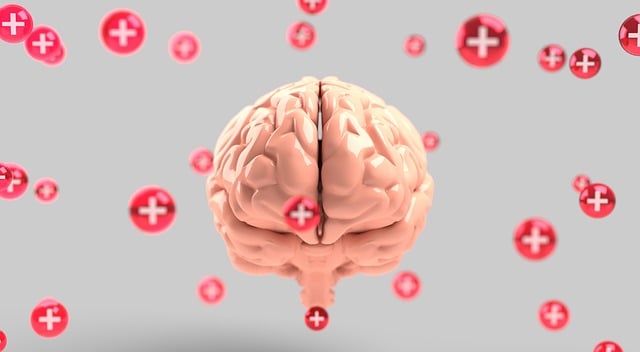Littleton Gender-Affirming Care Therapy (LGACT) offers inclusive stress management for diverse individuals, focusing on understanding gender-specific stressors and promoting mental wellness. By combining evidence-based practices like Mental Wellness Journaling, Compassion Cultivation, mindfulness, and Cognitive Behavioral Therapy, LGACT enhances resilience, self-acceptance, and emotional regulation. This holistic approach, supported by research from Littleton, reduces the impact of societal pressures and discrimination on mental health, improving coping mechanisms and overall well-being for all genders.
Stress management techniques are essential tools for navigating life’s challenges. This article delves into understanding stress, its profound impact on individuals, and offers practical solutions. We explore the role of innovative approaches like Littleton Gender-Affirming Care Therapy in mitigating stress. Through effective daily practices incorporating mindfulness, relaxation, building resilience, and coping strategies, readers will discover long-term wellbeing. These techniques provide a holistic framework for managing stress, enhancing quality of life, and fostering resilience in various circumstances.
- Understanding Stress and Its Impact on Individuals
- The Role of Littleton Gender-Affirming Care Therapy in Stress Management
- Effective Stress Management Techniques for Daily Life
- Incorporating Mindfulness and Relaxation Practices
- Building Resilience and Coping Strategies for Long-Term Wellbeing
Understanding Stress and Its Impact on Individuals

Stress is a universal experience that can stem from various sources, including work pressures, personal relationships, financial worries, and health issues. While occasional stress is a normal part of life, chronic stress can significantly impact an individual’s mental and physical well-being. It has been linked to increased risks of cardiovascular diseases, weakened immune systems, anxiety disorders, and depression. In the context of Littleton Gender-Affirming Care Therapy, understanding how stress manifests differently across genders and identities is crucial for providing inclusive support.
The concept of stress management is thus not just about learning coping mechanisms but also about fostering mental health literacy. Effective stress management techniques, such as Mental Health Education Programs Design, can empower individuals to recognize their stress triggers and develop personalized strategies. Incorporating practices like Mental Wellness Journaling Exercise Guidance and Compassion Cultivation can help individuals cultivate resilience, foster positive self-talk, and build supportive social networks—all of which contribute to overall mental wellness.
The Role of Littleton Gender-Affirming Care Therapy in Stress Management

Littleton Gender-Affirming Care Therapy (LGACT) plays a significant role in stress management, particularly for individuals navigating gender dysphoria or identifying as part of the LGBTQ+ community. This therapeutic approach creates a safe and supportive environment, fostering a sense of belonging and self-acceptance. By addressing the unique challenges faced by these individuals, LGACT helps to reduce the severe mental health impacts often associated with stigma and discrimination, such as burnout prevention strategies for healthcare providers and trauma support services.
Incorporating evidence-based practices tailored to diverse needs, this therapy facilitates open conversations about gender identity, expression, and related experiences. This process not only enhances emotional well-being but also promotes resilience in the face of societal pressures. Moreover, LGACT contributes to mental illness stigma reduction efforts by encouraging empathy, understanding, and respect for all genders, ultimately leading to healthier coping mechanisms and improved overall stress management.
Effective Stress Management Techniques for Daily Life

In today’s fast-paced world, stress has become an inevitable part of daily life. However, effective stress management techniques can help individuals navigate their busy schedules with resilience and mental clarity. One powerful approach is to incorporate mindfulness practices into one’s routine. Studies have shown that mindfulness meditation, breathing exercises, and yoga can significantly reduce stress levels by promoting relaxation and enhancing self-awareness. For instance, a study conducted in Littleton, known for its Gender-Affirming Care Therapy, revealed that regular mindfulness sessions improved participants’ ability to manage their emotions and cope with stressful situations.
Additionally, prioritizing mental health awareness is crucial for effective stress management. This involves recognizing when one is feeling overwhelmed and taking proactive steps to address the issue. Techniques such as cognitive behavioral therapy (CBT) can help individuals identify and challenge negative thought patterns contributing to stress. By combining these evidence-based methods with a supportive network of friends, family, or professional therapists, individuals can develop robust stress reduction strategies tailored to their unique needs. This holistic approach ensures that mental health is nurtured alongside physical well-being, fostering overall balance and resilience in daily life.
Incorporating Mindfulness and Relaxation Practices

Incorporating mindfulness and relaxation practices is a cornerstone of effective stress management techniques teaching, especially within the context of Littleton Gender-Affirming Care Therapy. These practices, such as meditation and deep breathing exercises, empower individuals to cultivate emotional intelligence and develop a stronger connection with their inner selves. By fostering mind over matter principles, participants learn to navigate life’s challenges with greater resilience and composure.
The integration of these strategies into therapy sessions allows for a holistic approach to stress management. Through regular practice, clients can better regulate their emotions, reduce anxiety, and enhance overall well-being. This, in turn, enables them to apply these techniques in their daily lives, fostering a sense of balance and calm amidst the stressors they may encounter outside of the therapeutic setting.
Building Resilience and Coping Strategies for Long-Term Wellbeing

Building resilience is a key aspect of long-term stress management and wellbeing. Through Littleton Gender-Affirming Care Therapy, individuals learn to navigate life’s challenges with increased adaptability and strength. This involves cultivating coping strategies that are tailored to their unique experiences and identities, addressing underlying causes of stress rather than merely masking symptoms. By fostering cultural sensitivity in mental healthcare practice, therapists enable clients to explore and challenge societal pressures and biases, promoting self-acceptance and empowerment.
The development of coping skills goes beyond therapy sessions; it empowers individuals to actively manage stress triggers in their daily lives. This may include practicing mindfulness techniques, engaging in physical activity, or adopting healthy habits that support mental resilience. Moreover, community outreach program implementation plays a vital role by providing additional resources and support networks, fostering connections that can mitigate isolation and enhance coping abilities.
Stress management is a vital aspect of maintaining overall wellbeing, and the techniques discussed in this article offer practical tools for navigating life’s challenges. By understanding the impact of stress on individuals and employing strategies like mindfulness, relaxation practices, and building resilience, folks can foster a healthier relationship with stress. Incorporating these methods into daily routines, inspired by innovative approaches such as Littleton Gender-Affirming Care Therapy, enables people to enhance their coping abilities and achieve long-term mental and emotional wellbeing.










